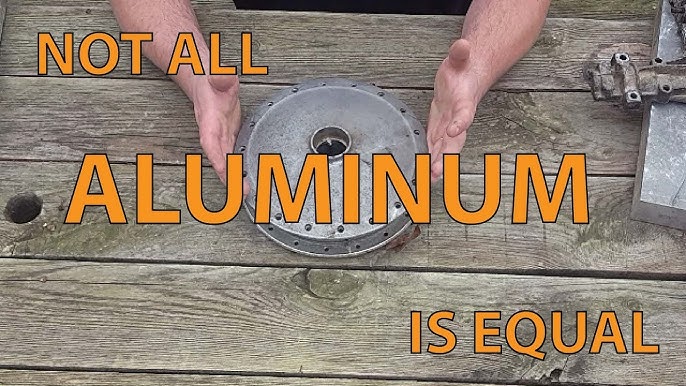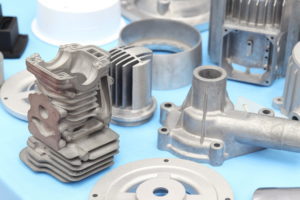The Main Principles Of Stahl Specialty Company
Table of ContentsSome Known Incorrect Statements About Stahl Specialty Company Stahl Specialty Company for BeginnersFascination About Stahl Specialty CompanyThe smart Trick of Stahl Specialty Company That Nobody is Talking AboutStahl Specialty Company Fundamentals Explained
Chemical Comparison of Cast Aluminum Alloys Silicon promotes castability by minimizing the alloy's melting temperature and improving fluidity during spreading. In addition, silicon contributes to the alloy's strength and put on resistance, making it beneficial in applications where longevity is important, such as vehicle parts and engine elements.It additionally boosts the machinability of the alloy, making it simpler to process into completed items. In this way, iron contributes to the total workability of light weight aluminum alloys.
Manganese contributes to the strength of aluminum alloys and boosts workability. It is commonly utilized in functioned aluminum items like sheets, extrusions, and profiles. The existence of manganese help in the alloy's formability and resistance to splitting throughout fabrication procedures. Magnesium is a light-weight aspect that provides stamina and impact resistance to light weight aluminum alloys.
Zinc enhances the castability of aluminum alloys and helps control the solidification process throughout spreading. It boosts the alloy's strength and firmness.
What Does Stahl Specialty Company Do?
Due to the fact that aluminum-silicon alloys have great casting properties, high gas residential or commercial properties, easy processes, and outstanding corrosion resistance, aluminum-silicon alloys are most generally used in the die-casting market in your home and abroad. At the exact same time, aluminum-silicon alloys are also fairly very early and extensively identified alloys created and used in die-casting. After continuous study and improvement, a lot of the present worldwide mainstream aluminum-silicon alloys have been settled and are absolutely nothing more than A356, A360, A380, ADC12, B390, and A413.
The primary thermal conductivity, tensile toughness, return toughness, and prolongation differ. Among the above alloys, A356 has the greatest thermal conductivity, and A380 and ADC12 have the least expensive.

The Main Principles Of Stahl Specialty Company
In accuracy spreading, 6063 is fit for applications where intricate geometries and premium surface coatings are critical. Examples consist of telecommunication enclosures, where the alloy's superior formability enables streamlined and aesthetically pleasing styles while preserving architectural honesty. In the Lights Solutions market, precision-cast 6063 elements develop sophisticated and effective lighting components that need detailed forms and excellent thermal performance.
(https://www.reverbnation.com/stahlspecialc)
The A360 exhibits exceptional elongation, making it suitable for facility and thin-walled elements. In accuracy casting applications, A360 is appropriate for sectors such as Consumer Electronics, Telecommunication, and Power Devices.

In precision casting, light weight aluminum 413 radiates in the Customer Electronic Devices and Power Equipment sectors. This alloy's exceptional deterioration resistance makes it an exceptional selection for exterior applications, guaranteeing durable, resilient items in the stated industries.
Fascination About Stahl Specialty Company
The aluminum alloy you choose will significantly affect both the spreading procedure and the residential or commercial properties of the final product. Since of this, you need to make your decision very carefully and take an enlightened method.
Figuring out the most suitable light weight aluminum alloy for your application will suggest evaluating a vast range of characteristics. The initial classification addresses alloy characteristics that impact the manufacturing process.
The alloy you pick for die spreading directly impacts a number of facets of the casting procedure, like exactly how easy the alloy is to collaborate with and if it is vulnerable to casting problems. Hot cracking, likewise recognized as solidification breaking, is a regular die spreading defect for light weight aluminum alloys that can cause internal or surface-level tears or cracks.
Not known Incorrect Statements About Stahl Specialty Company
Certain aluminum alloys are much more vulnerable to hot splitting than others, and your option should consider this. try these out Another common defect found in the die spreading of light weight aluminum is pass away soldering, which is when the actors adheres to the die wall surfaces and makes ejection tough. It can harm both the actors and the die, so you must try to find alloys with high anti-soldering residential properties.
Rust resistance, which is currently a significant attribute of aluminum, can differ substantially from alloy to alloy and is an important particular to think about depending on the environmental problems your product will be subjected to. Wear resistance is one more property typically looked for in light weight aluminum items and can set apart some alloys.